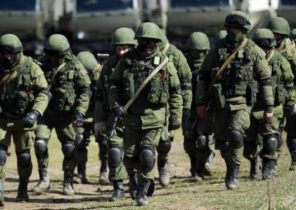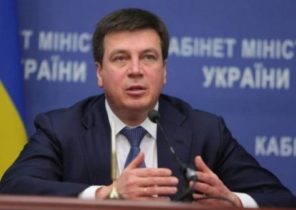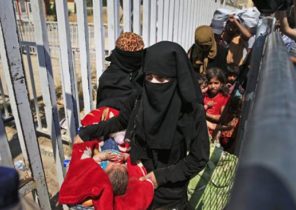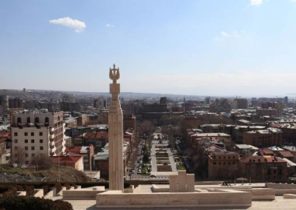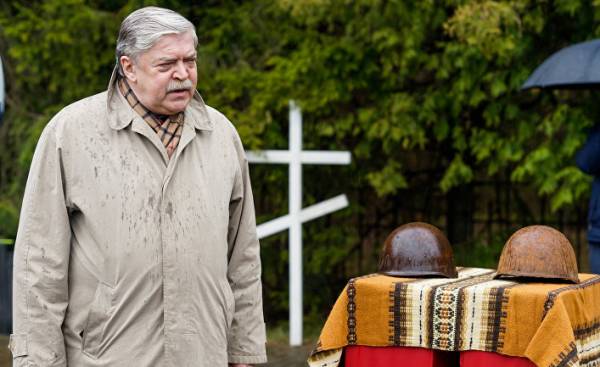
“What is considered European? The forcible shaving of beards? Drink coffee? Advanced technique and manners? We have adopted and are adopting with Peter’s time — and still lag behind. Because Europe is primarily a public system, the political system.” (Sergei bajmukhametov, “Novaya Gazeta”, June 9)
“Even democracy in Russia, but own it — not like in Europe. Maybe you will answer me, what are European values? [..] If the value of this gay Europe, we have different values.” (Ambassador of Russia in Latvia Yevgeniy Lukyanov,Delfi.lv, June 8)
If someone haven’t noticed: we have another Russian Ambassador. And not just different, but different. Engineer and lawyer Veshnyakov was replaced by a journalist and a security official said. The new Ambassador, unlike previous, gifted rhetorically. Besides, at the first press conference, he immediately identified their own playing field. In the end, not every diplomat working in the country, the Ministry of foreign Affairs which is headed by an openly gay man, let me contemptuous sneer on values “>”. And yet, I don’t think the rhetoric Lukyanova should pay a lot of attention. The most important part of the work of ambassadors (especially Russian) is on the sidelines. And the fact that Lukyanov says the press does not necessarily reflect the main directions of its activities.
The discussion about whether Russia is Europe, of course, an indispensible element of Russian culture. So everyone who likes to rant, to consider Russian “Europeans” or “Asians” will be out on this field, which was worn for over 200 years. In the 19th century, formed when modern Russian culture, she had to answer the question: why we are not like Europe? The obsession with the question characterizes the whole of Russian philosophy. Florensky and Berdyaev, and Samarin, Aksakov, Vladimir Solovyov and Rozanov… none of them are impossible to understand, unless you consider the great opposition — “Russia and the West.” But best of all, this obsession was expressed by another Russian thinker Vladimir Vysotsky: “We’re all looking for the right answer, but does not find the right question.” This applies to conditional “Slavophiles”, who at least profess belief in the superiority of Russian civilization, and the conditional “Westerners” for whom any deviation from Western norms testifies to the hopeless backwardness of Russia.
Of course, Europe remains a major cultural landmark of Russia. It’s not just about the banal fact that the Russian elite still forms children in Oxford and goes to rest in the nice, not the forms of children in Beijing and goes to rest in Pyongyang. Talking about deeper processes. All great products of Russian culture — from literature to film — created with the Western context and at the same time in controversy with him. Pushkin cannot be understood outside of the context of Byron. “Crime and punishment” by Dostoyevsky is a classic European detective novel, only “existential turned inside out.” And the whole Slavophile nationalism arose under the influence not so much of Orthodoxy, how much of Lorenz von Stein and Hegel. In short, the roots of modern Russian culture is undoubtedly to be found in Western Europe.
Another issue is that Russia instinctively has failed to adopt itself as one of many European States. In this sense, she always stood at the door of Europe: we kind of like the inside, but want to watch from the sidelines. It is no coincidence that critics of European modernism, always saw in Russia the mystical and the alternative to the West. No matter whether the Soviet Communist alternative, and admired Jean-Paul Sartre, or the Putin alternative, which today is admired by Oliver stone. It has always been a strong side of Russia: standing in the doorway, to offer themselves as “more European” alternatives to Europe — more compassionate, fair, spiritual, respecting traditional values, etc.
In different eras there was repeated the same cycle. The first phase is unconditional love and reformism, in equal partnership with Europe, we finally realize its huge potential. The next moment it turns out that equivalence in big trouble: no we are not ready to invest the equivalent of nor the West can satisfy our needs. Then we quickly sober up, just like the old Russian fairy tale about goldfish: nothing, instead of the Princess the old woman, instead of the castle — ruins. Then comes the second phase of nationalism, which Laya Greenfeld calls ressentiment.
We see big differences between themselves and the West, but trying to convince myself that our defect is actually an advantage: we are “more spiritual”, “moral”, “heroic”. This phase can go very far: “Yes, we are nasty and ruthless, but no one will teach us how to live!”. Moreover, in this phase it is necessary to find in the West, some not quite European enemy who spoils our, overall, has a great relationship with the “true” Europe. Historically, it was Britain, today, of course, the USA. Finally comes the third phase, when there is a fracture, diplomatic or military crisis, then we can tell ourselves and others: well, we showed them and, well, now they began to respect us, so you can return to phase one.
Such changes of sentiment in relations with the West are typical for many countries committed to the modernism of the West, but who are aware of their relative backwardness. At the time it passed through Germany, relapses are observed in Poland, Hungary and very pronounced in Turkey.
And yet, of course, Russia is special. Contrary to the illusions of many Westerners, she will never be a Poland. First of all, the Russian authorities have, for various reasons, a very low threshold of risk. She’s not too fond of experiments with liberal democracy, which always involve some risk. The Russian elite don’t pay much attention to the suspense about who will win at the next election.
Second, Russia has a keen consciousness of national prestige. She sees herself only as a superpower. Unlike Western countries that calculate benefits and losses, Russia is ready to great lengths just to confirm Autonomous ability to be in the same League as the US, China and Germany. These Russian features should just accept the way they are, if we want Europe not only to fear but to understand.
More difficult in Russia today to take the violence, this apparent naturalness, which beat demonstrators poured the acid of the opposition, will the prisoners be executed or tortured Chechen gays. In my opinion, is a much more dangerous trend than a cult leader, and full of bravado geopolitical rhetoric. Maybe Russian Leviathan special. But he’s definitely a close relative of all European leviathans, so he needs to fulfil the functions corresponding to its appearance.
